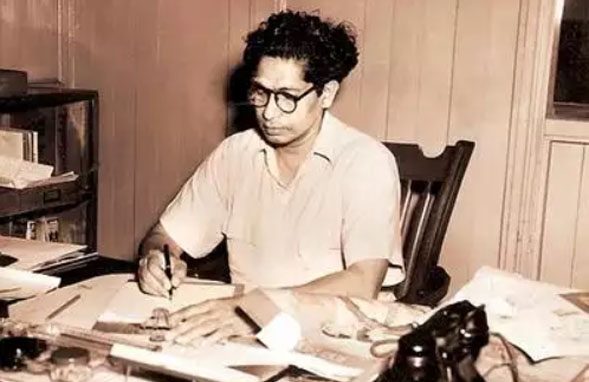
Treasured Indian poet and a celebrated figure of the Hindi literary world, Harivansh Rai Bachchan passed away at the age of 95 on January 18, 2003. He was a cherished poet of the ‘Nayi Kavita Literary Movement’ or the ‘romantic upsurge’ of Hindi-language poetry in the 20th-century. Popularly known as ‘Bachchan’, the legacy of this literary genius lives on not only in the world of Hindi literature but also in the lives of those inspired by the power of his words
Harivansh Rai Bachchan was born in 1907 in the city of Allahabad (now Prayagraj) in British India. As a part of family tradition, Bachchan attended the ‘Kayastha Paathshaala’, where he learnt the ancient Urdu-language. He went on to study at the largest residential university in Asia, the Banaras Hindu University. During his education in Varanasi, Bachchan became greatly influenced by the Indian independence struggle.
Despite his eternal contributions to Hindi literature, the initial phase of the great poet’s career started with the English-language. In 1941, he began teaching for the English department at Allahabad University and in the early 1950s, he completed his PhD. on Irish poet W.B. Yeats at Cambridge University.
Interestingly, the celebrated Harivansh Rai Bachchan born in a Hindu Srivastava Kayastha family was originally ‘Harivansh Rai Srivastava’. It was only when he first began writing Hindi poetry that he adopted the pen name ‘Bachchan’ (or child-like), replacing his family name ‘Srivastava’. Bachchan had a strong grip over Indian languages like Hindi, Urdu and Awadhi as well as Persian, however, most of his writing witnessed an engrossing literary blend of a Hindi-Urdu vocabulary.
‘Madhushala’, first released in 1935, was one of Bachchan’s most popular and celebrated books of poetry. The book comprises over a hundred quatrains (four line verses) and like most of Bachchan’s work the poetry was dipped in Sufi serenity with a philosophical undertone. ‘Madhushala’, seen as an important piece of the 20th-century Neo-Romanticism Literary Movement of Hindi literature, was a part of a trilogy comprising the 1936 ‘Madhubala’ and the 1937 ‘Madhukalash’. The trilogy was highly influenced by Persian poet Omar Khayyam’s ‘Rubaiyat’.
Apart from producing poetic masterpieces, Harivansh Rai Bachchan wrote the Hindi translations of Shakespeare’s Macbeth and Othello. In 1955, he began working with the Indian Ministry of External Affair in Delhi, making efforts for close to a decade for the development and promotion of Hindi as India’s official language. The poet also received the third-highest civilian award, Padma Bhushan for his service to Hindi literature. The Indian Prime Minister Indira Gandhi’s assassination in 1984, inspired Bachchan’s last poetic gem titled ‘Ek November 1984’.
After the death of his first wife in 1936, Harivansh Rai Bachchan married Indian social activist Teji Bachchan. They had two sons, Amitabh Bachchan and Ajitabh Bachchan. The former is one of the biggest stars of Hindi cinema.
Bachchan’s outlook on life reflects through the introduction he always gave for himself; “Mitti ka tan, masti ka man, kshan-bhar jivan– mera parichay” or “A body of clay, a mind full of play, a life of a moment – that’s me”








